June 2, 2022
Samuel Bertram is the CEO and co-founder of OnePointOne, an AgTech startup in the Bay Area that has developed the most sophisticated indoor farming technology in the world.
Born in 1993, Samuel grew up with his brother, John (co-founder and CTO of OnePointOne) in Wheelers Hill, Victoria, Australia. Samuel (and John) came to the United States to play collegiate tennis in 2011. Samuel captained his Division 1 Tennis team at Santa Clara University and graduated in 2016 with a B.S. in Mechanical Engineering, and in 2018 with an M.S. in Robotics and Mechatronics. While at Santa Clara, Samuel was involved in the creation of an autonomous marine vessel as well as an autonomous omnidirectional robot. Samuel’s Master’s Capstone Project was the origin of OnePointOne’s technology.
Samuel and John founded OnePointOne, Inc. in July of 2017 with a mission to nourish the 1.1 billion people that began this millennium hungry. Since then, Samuel has raised over $60M from notable investors such as Fred Luddy, Novak Djokovic, and HRH Khaled bin Alwaleed. With that funding, the incredible team at OnePointOne has built the most advanced vertical farming technology on the market (according to Bain & Company). OnePointOne, Inc. employs a completely unique combination of aeroponics, automation, and AI, and stands apart in the field of indoor farming in terms of productivity, resource efficiency, and data capabilities.
OnePointOne’s Cultivation Chambers (CCs) are two-story tall, fully-enclosed cubes that grow a wide variety of berries, flowers, root crops, and leafy greens. Their fleet of robots manages the facility’s operations, which include: plant movement, plant inspection, cleaning, light movement, and more. OnePointOne plans to build hundreds of these CCs throughout the world to combat major crises in health, nutrition, and medicine. OnePointOne focuses on robotics and automation, agricultural technology, plant-based food and medicine, digital cities, and the Human condition.
Recently, OnePointOne launched “Willo,” which is the future of personalized nutrition. Willo grows the best-tasting produce on the planet. Members discover how complex, robust, and delicious produce can be. And their greens are built to last. With Willo, you can guarantee that your produce will last 2-4 times longer than what you would find at a conventional grocery store. Gone are the days of throwing out expensive greens that spoil just a few days after buying with them. (Use code BEN20 to save $20 on the Willo reservation fee.)
Everything Willo grows begins exclusively with a non-GMO seed, with each plant receiving the perfect mixture of elements to maximize taste and nutrient density. By providing the ideal composition of elements for each crop, they can grow exceptional produce in significantly less time while amplifying the plant’s natural ability to fuel and heal you.
Willo‘s technology virtually eliminates the environmental impact of agriculture. Designed with sustainability in mind, Willo’s crops are grown in a 100% controlled environment. This means that every single farming element is meticulously cared for, including the seeds, light, water, nutrients, and air, resulting in the most pristine produce on the market. Their farms can grow anywhere on the planet all year round.
As a Willo member, you will acquire your own personal farm share in a vertical farm. Their unique member platform allows you to design your crop selection, monitor its growth, and access nutritional data, recipes, personalized recommendations, and more. Their crop list is growing far beyond leafy greens, microgreens, and sprouted beans. There will always be some produce varieties that just won’t make sense vertically farmed. Even so, there are still hundreds of exciting offerings Willo is looking at cultivating and perfecting in time.
Imagine the most perfect tomato you’ve ever eaten, grown in the dead of winter and delivered to your doorstep mere days after it’s been harvested. Remember the taste of that fresh lemon basil you had on that trip to Thailand, and every other noodle dish has paled by comparison since—how would you like a fresh supply always in your kitchen? Picture a super kale that delivers an amazing supply of 4 vitamins and minerals in a single serving and tastes unbelievably delicious while doing it. And that’s just the beginning.
During this discussion, you'll discover:
-Sam's journey into the health and fitness field…08:02
- WHO identified poor nutrition as the most problematic element of health
- Make the biggest impact in the shortest amount of time
- Novak Djokovic's ball boy as a child; Djokovic is now an investor in Willo (use code BEN20 to save $20 on the reservation fee)
-Discussing wholesome parenting techniques…12:13
- Essay by Naval Ravikant that Ben mentions on the 5 core skills needed for life
- Reading
- Writing (long-form)
- Logic and/or computer programming
- Arithmetic
- Rhetoric/persuasion
- Raise a Genius by Laszlo Polgar
- Lazslo Polgar's format of education:
- Five-day week curriculum
- An hour of foreign language
- An hour of general study: science, social studies, etc.
- An hour of computers and computing
- An hour of moral, psychological, and pedagogical: Humor and joke-telling, etc.
- An hour of gymnastics
- Boundless Parenting
-How Sam developed an interest in helping people through better nutrition…17:31
- Awareness of the brevity of life
- Remove ego; analyze ideas
- Love is the only currency that really matters
- Plant medicine opening our hearts and minds to be more aware of our world
- Podcasts on plant medicine:
-From playing tennis to studying engineering…21:54
- There was no grand plan
- Found nano-engineering interesting
- Desire to squeeze as much juice out of life
-The moment Sam opened his heart to the betterment of humanity…23:38
- Millions of human beings suffering can be overwhelming
- “How does my job help others?”
- BGL is focused on impacting lives, not monetary goals
- The simple things we take for granted are what we should be most grateful for
-The essential elements of the Willo brand…30:21
- Plants are the base of human nutrition
- Diet-related disease costs 10% of U.S. GDP
- When you're well in the gut, you're well in the mind
- OnePointOne
- Humanity hasn't revolutionized agriculture in a long time
- Agriculture is the oldest industry on earth
- Agriculture destroys habitat
- Willo (use code BEN20 to save $20 on the reservation fee)
- Vertical farming
- Third dimension
-Aeroponics and AI farming…36:51
- Aeroponics is a subset of hydroponics
- Growing in a mist vs. a stream of water
- Grow twice as fast as hydroponics
- Longer shelf life
- Organic is not pesticide-free
-Comparison of nutrient density of plants grown in soil vs plants grown in hydroponics…39:47
- Organic does not mean pesticide-free
- 20%-300% higher nutrients than organic whole foods
-How an app can allow you to personalize your nutrition…42:25
- willo.farm (use code BEN20 to save $20 on the reservation fee)
- Willo as your personalized farm
- You choose what to grow on your vertical farm
- Ability to grow plant medicines
- Partnership with a seed bank
- There are 30,000 edible species of plants
- We are now consuming only about 300
-How Willo differs from other vertical farming systems…45:32
- Lettuce Grow
- Safety
- Designed to satisfy a mass market
- Far more user friendly
- Consuming the highest quality plant on earth
- No heavy metals pesticides
- Quickly change the type of plants grown
-What's the carbon footprint of Willo…48:38
- Compostable packaging
- Seatopia (use code BENGREENFIELD20 to save $20)
- US Wellness Meats
- Butcher Box
- Community Supported Agriculture
-Sam's diet…52:00
- Gluten-free vegan with intermittent fasting
- Protein from vegetables, nuts, and seeds
- Mindful about the sourcing of B12s, DHA's, and Omega's
-Molecular isolation as plants are grown/ is there a biochemistry lab?…55:59
- Choose from a very wide variety of cultivars and grow them in specific ways to get the high quality
-The future of vertical farming…57:30
- Plants are incredible bio-reactor; work and push the plant to produce any molecule you want
- Use plants to produce biologics
-And much more…
-Upcoming Events:
- World Vision's Global 6K for Water on June 14. Click here to join the BGL team virtually from wherever you are for this year's Walk for Water.
- Keep up on Ben's LIVE appearances by following bengreenfieldlife.com/calendar
Click here for the full written transcript of this podcast episode.
Resources mentioned in this episode:
– Sam Bertram:
- OnePointOne
- Willo (use code BEN20 to save $20 on the reservation fee)
- The future of personalized nutrition
- The ability of plants to reverse disease in humans
- Quality over quantity
- Our vision to provide everyone with their own farm growing their own food (in the cloud)
- The advantages/benefits of Willo (pesticide-free, no heavy metals, more nutritious, etc.)
- Personally:
- Shortcomings of human nature and how to properly manage them
- Nuanced discussions about capitalism
- Physics/Astrophysics
- Ancient human history
- The blatant and largely-ignored truth regarding Americans' diets.
– Podcasts:
- Evolutionary Herbalism: Part 1 – The Fascinating Science, Spirituality & Medicines Of The Plant Kingdom With Sajah Popham.
- Mind-Altering Drugs, Plant Medicines & Psychedelics In The Old Testament, How Altered States of Consciousness Can Enhance Spiritual Experiences & Much More With Danny Nemu.
– Books:
– Other Resources:
- WHO
- Essay by Naval Ravikant
- Boundless Parenting by Ben Greenfield
- Lettuce Grow
- Seatopia (use code BENGREENFIELD20 to save $20)
- US Wellness Meats
- Butcher Box
- Community Supported Agriculture
Episode sponsors:
–JOOVV: After using the Joovv for over 5 years, it's the only light therapy device I'd ever recommend. Give it a try: you won't be disappointed. For a limited time, Joovv wants to hook you up with an exclusive discount on your first order. Just apply code BEN to your qualifying order. (00:56)
–Water and Wellness: The best solution for clean and safe drinking water. Water and Wellness also offers an amazing line of essential water additives such as Quinton Marine plasma which contains over 78 trace minerals and elements from the ocean to help restore your biological terrain. Get 15% off your order when you use discount code GREENFIELD. (02:09)
–Kion Aminos: Building blocks for muscle recovery, reduced cravings, better cognition, immunity, and more. (03:34)
–Butcher Box: Delivers healthy 100% grass-fed and finished beef, free-range organic chicken, and heritage breed pork directly to your door on a monthly basis. All their products are humanely raised and NEVER given antibiotics or hormones. (28:17)
–Inside Tracker: Created by leading scientists in aging, genetics, and biometrics, InsideTracker analyzes your blood, DNA, and fitness tracking data to identify where you’re optimized—and where you’re not. (29:18)


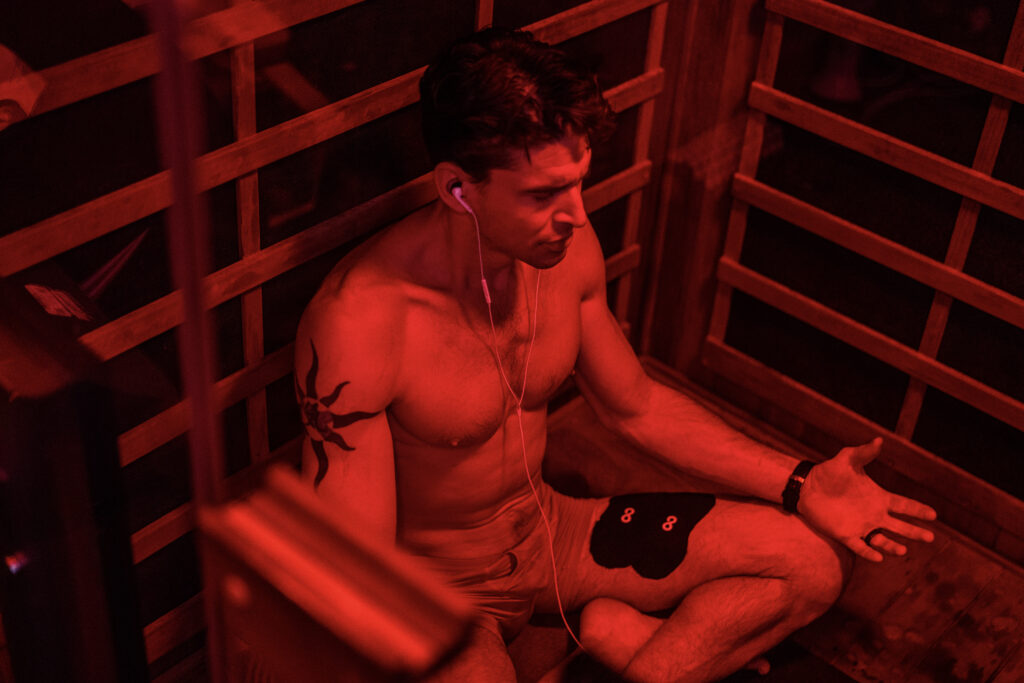
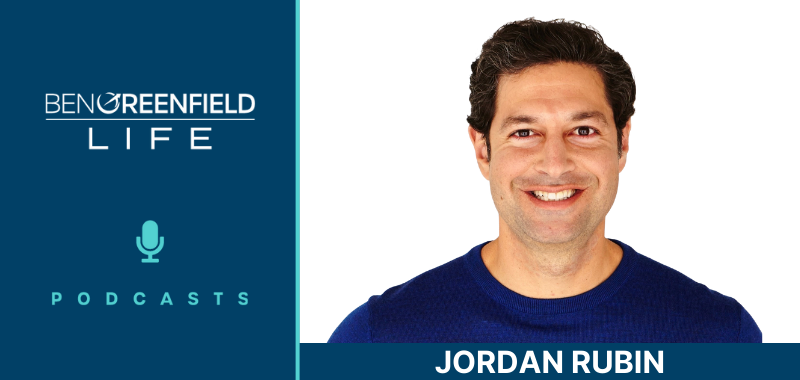





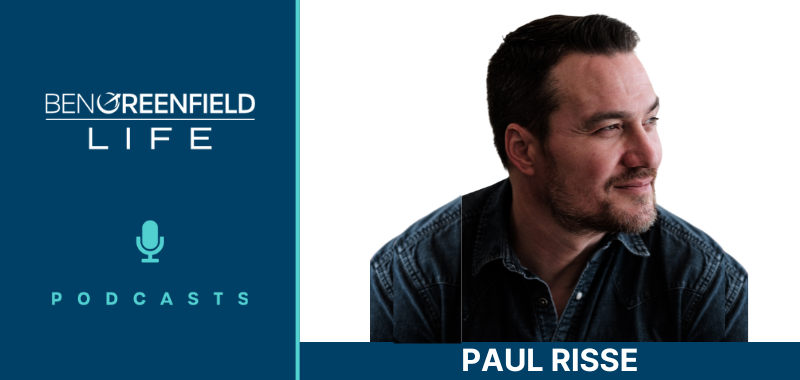
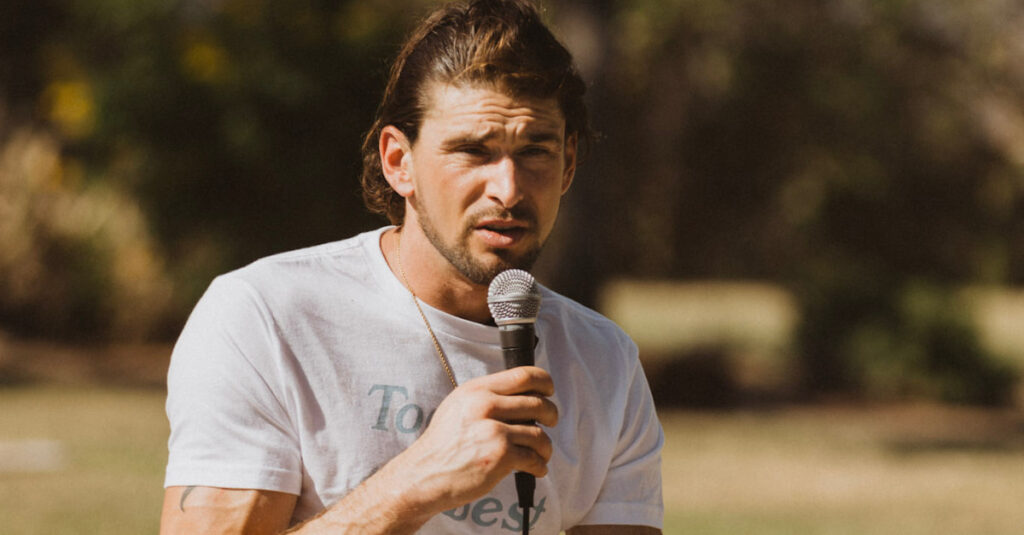


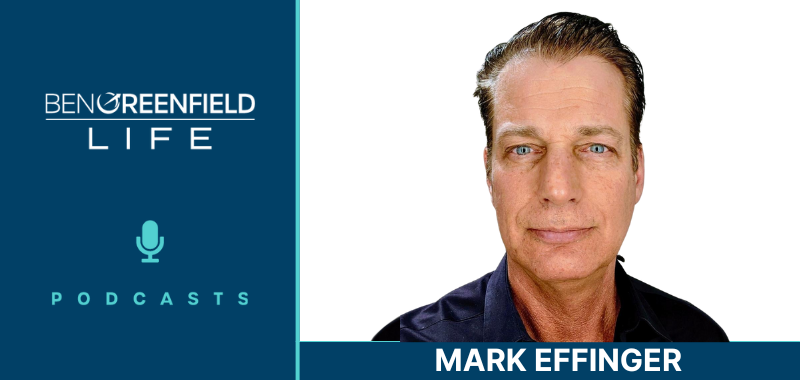
I enjoyed skimming through the key points of your interview, but I find myself aligning with Scott’s perspective. When I noticed the reference to the WHO as a resource, it cast doubt on the credibility of the information I had just absorbed. I understand you have a hectic schedule, Ben, but it might be worthwhile to take a moment and delve into thorough research on the WHO and its major funders. Explore the intricate connections between these entities, including big pharma, to gain a comprehensive understanding. I’ve always placed implicit trust in your insights for health innovation and guidance, but maintaining credibility requires a balanced approach. Striking a balance between endorsing globalist organizations and genuinely aiding your devoted community is crucial. It’s a time for introspection, Ben.
Ben is to be commended for having people that actually know science and understand food production. I’ve read some of the critical comments here and they are essentially modern day Luddites. Hydroponics saves enormous amounts of water. Up to 95% in some cases. Unused space like rooftops can be used, which conserves space that could be utilized instead for nature and wild places. The use of pesticides also can be minimized too using hydroponics. All in all a great podcast and I’d like to see more like it. Keep up the good work!
Thank you all for your comments. Sam Bertram graciously agreed to record a few responses to questions on this comment thread. They can be heard at this link: https://bengreenfieldlife.com/wp-content/uploads/2022/06/BGF-—-OnePointOne-Supplemental-Recording.m4a
He clearly represents current globalist interests, do harm and de-nature.
If you really want to know the future that lies ahead, check out the Keshe.Foundation
Do not listen to those trying to smear this genius, M. T. Keshe
Rather check it out for yourself, it’s quite cheap to replicate amazing effects for body and environment
https://en.kfwiki.org/wiki/KF_Wiki
https://www.youtube.com/watch?v=PWgtn1Urlzc
Currently with an exhibition in Linz, Austria, which can be visited conventionally, now and unconventionally, soon…
I think ideas are definitely needed because we are already off the cliff. Matt S is correct when he speaks to why there are food storages. I am worried about ideas like this which reminds me of the story of the Tower of Babel. We can see from the 3rd industrial revolution which was microchips that it has set us up for a world where a few companies hold enormous values and employee a very few people. The 4th revolution is AI, again we will have the same companies and new companies that will hold even greater value and employe now even fewer people. It seems to me we keep trying to think our way out of the cliff we have driven off by trying to control, mimic, manipulate what nature does. It’s all been written before. We need to go back to go forwards. Regenerative, community, meaning
When I read your comments I think, why not go back to the Horse and Buggy days? Hydroponics is the best way to conserve water. Also Roof top growing is another way to go. Some foods can be grown in the city close to markets which saves transportation costs and utilizes the space well For instance:
https://www.agritecture.com/blog/2019/1/6/how-hydroponics-can-help-feed-the-world-while-saving-water
““[This system] allows us to use about 95% less water than conventional field farming,” says Gotham Greens co-founder and CEO Viraj Puri. “We use less than a gallon of water for every head of lettuce we produce.”
I loved this podcast. Thanks Ben for allways making great interviews that open my mind for the great possibilites. Keep up the amazing work. Jota.
I appreciate the feedback Jose
Sam is unfortunately mistaken on a great many things, and I’m disappointed in Ben for giving this gentleman and his company a bigger voice. One issue is attempting to use a technological solution to solve a biological problem. Instead of addressing the real issues (soil depletion and monocrop agriculture), his company is pretending to solve the problem with “AI” and automation. The reality is that we can’t live on a planet without soil, and trying to invent our way out of this reality demonstrates his complete disconnect from the ecological world. He also ignores the complexity of plants and their compounds (many of which we don’t even recognize or understand) and that in order for a plant to be nutritious the nutrients have to come from somewhere. This is the same thinking that brought us “fake meat” and “lab grown meat” where a giant factory is attempting to create a semi-nutritious product while ignoring the fact that all the inputs for these products need to come from somewhere.
His statements about the diet-related disease burden in the US are also problematic. Yes, the Standard American Diet is awful. Aeroponics will not solve that problem. Americans already have many health-creating foods to choose from in their local supermarket; the problem is that most are choosing not to eat them. New technology isn’t going to stop most Americans from eating fast food, junk food, and ultra-processed foot. Actually it probably won’t change ANY of their eating habits.
Sam is also mistaken about the issue of food shortages in places like Africa. There is already more than enough food available to feed the entire globe. The barriers are food waste, logistics, distribution, and politics. There are already enough calories to go around if we didn’t have a glut of them in one place and lack of them in another. Furthermore, the people who are hungry aren’t going to have their nutritional needs met through pea shoots and kale. The human organism has a need for protein, and more specifically animal protein. Compare Sam’s strategy to something like Allan Savory’s project of reversing desertification by holistically managing animals on the land. This strategy creates an intact ecosystem while also providing food and income for local farmers. Sam’s strategy will instead destroy habitats and continue to create wealth for himself and his venture capitalists.
Then again I guess we can just feed the world on 20 pounds of pea shoots every day.
Excellent points Matt. Also, as we learn more and more about the frequencies of the physical universe and each substance and being on this planet, it becomes obvious that there are many subtle, frequency and other, inputs that Nature designed to come FROM THE EARTH, not from a sterile, AI-powered farm with no connection to Nature. Just like humans thrive with REAL connection, so do plants. Sam’s company may be able to create higher quantities of “vitamins” in the plants, but I’ll be willing to bet they are sadly lacking the etheric energies.
At best, Sam’s project would provide an auxiliary produce source for most, and perhaps a primary source for others living in food deserts.
Matt:
I would suggest that you are barking up the wrong tree. Of course, we are all familiar with the complex structure of plants and humans. I don’t believe Sam is not trying to be a God but rather make available food, to war torn Nations who don’t have the smarts to realize how valuable human life is. The destruction of crops. is also the problems of local droughts, flooding bug infestation and weather. It is easier to grow vegetable crops in a contained area by Biospheric growth than to move all the people and animals. Sam’s thinking is sound and futuristic. As Plato said to Aristotle, who was older than himself, “you are very young my son, and as the years go by you will change, or completely reverse your opinions”. Your logic, in my opinion, does not show advances in science, which includes Agriculture.
Some very good points however, but we must grow beyond being meat eaters due to the requirement by animals to consume more energy than they give to the present highest intellectual animal in this World and that being humans. Meat, grown in a laboratory, does not produce methane gas that destroys the protective ozone layer! Cheers and good health.
After reading Karen’s comment about the podcast, I went ahead and read the transcript and I’m even more amazed at what Ben is promoting through this guest. In support of his product, Sam says:
“I think that this solution firstly gives you the peace of mind that I am consuming the highest quality plant materials on earth and I am not consuming heavy metals or pesticides.”
YET HE HAD JUST STATED:
“… our ability to produce biopharmaceutical molecules. These are real bonafide medicines, and vaccines as well out of these plants, out of these facilities.”
I don’t know about your other readers, but when I think of peace of mind from the food I consume, I DON’T associate it with getting vaccines, knowingly or UNKNOWINGLY through plants I’m eating.
I loved skimming the points of your interview above, but I agree with Scott, when I saw you referenced the WHO as a resource, it immediately discredited what I’d just read. I know you’re a busy guy Ben, but it’s probably a good idea to take some time out and do some serious research on the WHO and it’s two largest funders. Then, check out the interrelationships between those parties, big pharma, etc. You get the picture. I’ve always trusted you implicitly Ben, for health innovation and guidance but you can’t have it both ways. It won’t work to pander to globalist organizations while trying to truly help your loyal community. Time for some soul searching Ben.
I just listened to this podcast and all I can say is WOW! Out of one side of his mouth he talks about being the healthiest you can be and out of the other side of his mouth he talks about nano technology and putting vaccines and pharmaceuticals in plants. If that’s not hypocritical I don’t know what it is. Look at what’s happening currently with the pharmaceutical industry. It is out of control and ruled by the almighty dollar. Carbon dioxide is not destroying the world and is not bad plants needed to grow.. If they want to remain above board they need to separate themselves from the pharmaceutical industry as quickly as possible. They obviously don’t understand the globalist desire to depopulate the world and not feed the world nutritious things. I think they need to reevaluate exactly what their mission is because it appears they are just following the money and getting sucked in to the very corrupt industry that we need to get rid of.
You first bullet point shared above…the WHO identified poor nutrition as the most problematic element of health. Citing anything from the corrupt, conflicted WHO is a really bad idea if you desire to have credibility. They are still advocating COVID injections for all of humanity including but not limited to pregnant women and children!!
Amen !